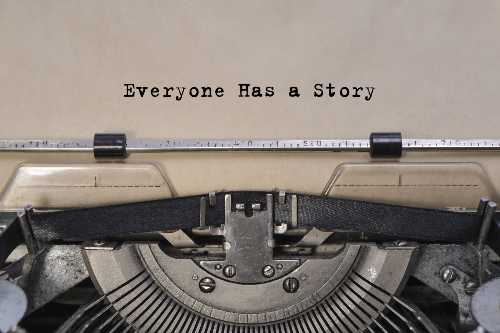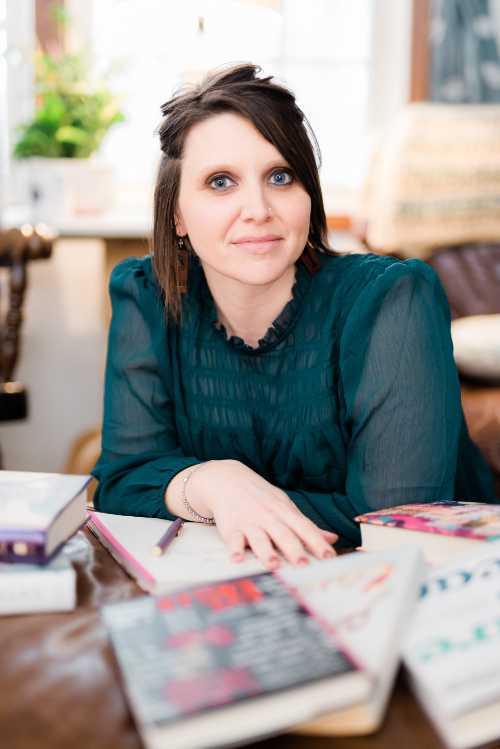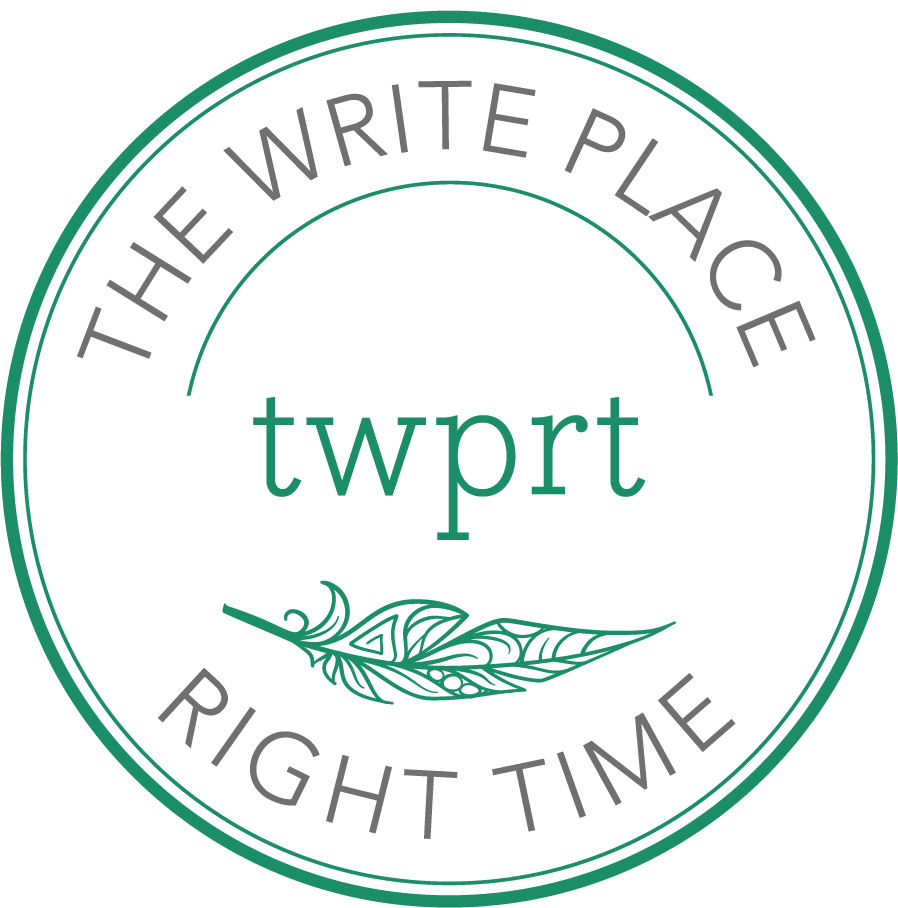
No matter if you write fiction or nonfiction your story needs a universal element. We’ll define it in a moment, but in a nutshell it’s the thing your readers relate to and can see themselves within. This is true even if your narrator’s journey is so crazy it’s nearly unbelievable or if the book is in the fantasy or supernatural realm.
Take Harry Potter for instance. We all know that this series about witchcraft and wizardry is fantastical but we still relate to Harry’s needs for belonging and a sense of purpose in the greater world he’s a part of. Regardless if a story is fact or fiction, it’s critical the reader relate to the story and see some part of themselves reflected in it. So what is the universal element inside your story and have you considered it?
What's the Universal Element Inside Your Story?
Since I’m a nonfiction writer (and a memoirist most specifically), I’ll be writing about the universal element inside your story from the memoir perspective. If you write fiction, the same principles apply but you may not find examples here.
So, let’s define the universal element a little more specifically. We’ve already identified it’s something the reader connects with or relates to. But the best metaphor I’ve heard was from an author and writing coach Allison K Williams who taught a course, Memoir From Memory, who described the universal element as a mirror. First it reflects you and then it reflects the reader.
That is to say, the earlier drafts of your memoir, as you are getting your story down onto the page for the first time, are more about reflecting you onto the page and what that time period or experience was like for you. But by the time you get to a final draft, the reader must see themselves as well. They may not have lived your life or experienced every single thing you did, but there’s something there that reminds them of themselves and their own journey.
What might resonate with a reader? Well, there are a handful of things that are collective to the human experience. Things such as love, belonging, safety, birth, transformation/growth, death, loss/grief, etc. Any of these could be the universal element inside your story.
It’s important to see the universal element not as the entirety of the story but the emotional piece that floats beneath it all. Vivian Gornick writes about the Situation and the Story. The situation is the context or circumstances of the piece (the plot) and the story is the emotional experience that the writer is trying to convey. Our situations might be different but our stories might be similar and that’s how the reader connects.
What It's Not
I think the most important thing to understand about the universal element of your story is that it’s not a way of saying that all human experience is exactly the same, or that one particular story about one particular person speaks for the masses of people that the writer might be related to. So a black writer and their story doesn’t speak for all black people.
Conversely, the universal element is not about canonizing only white voices. While this has happened―white voices prevail in literature―it’s not the universal element that has done this but the way people have prioritized certain texts.
When I say find the universal element inside your story, I’m not asking you to assume that your story can be related to by all people. It can’t; that’s impossible. There are too many of us, too many differences, and various other factors.
What I AM saying is make sure that your story is not JUST ABOUT YOU. Memoir retells your experience but that retelling needs to offer something to the reader. Your story needs to transcend from yours to theirs. That’s the purpose of the universal element inside your story. To meet your reader halfway and say, “Come, walk with me. I have wisdom to share that may offer you something.”

Why the Universal Element Inside Your Story is Important
The universal element inside your story is important because without it you’re only writing for you. Anyone else reading it won’t care. Now, if you are in fact writing it for you and have no intention of publishing or selling, then write whatever you damn well please.
But if this isn’t the case and you’re writing with deliberate intention to publish by some means (self or traditional or somewhere in between), then you need to have the universal element inside your story. People need to care about what you’re saying which means some part of it has to be about/for them. Beyond that, agents need it.
Literary agents and publishers will demand that the universal element be present. Agents will use this to help sell your book. They’ll want to be able to talk about the book’s “salability”―why people will want to read it. People will want to read it because it’s about grief, or loss, or love, or finding one’s way. They can talk about the market for the book based on what the book is about and when you have to trim down your book to one sentence to describe it, you’ll likely end up drilling it down to one of those words from the collective human experience. Universal = saleable.
The Formula for Writing the Universal Element
Marion Roach Smith has a formula for ensuring the universal element makes it inside your memoir. It goes something like:
- My story is about [insert universal element]
- Which is illustrated by [insert my life experience]
- As told in the form of [style of your memoir]
In that order the Gornick approach would be that the first section is the story but that part where it says ‘which is illustrated by’ is the situation.
If I use this formula for my own memoir, Dear Universe, I Get it Now, it would look something like:
- My story is about finding myself and pursuing my dreams (universal element)
- Which is illustrated by my perseverance toward my writing goals (life experience)
- As told in the form of a series of letters written to my pal The Universe (style).
As you get started writing your book, I would suggest that you consider this formula during your planning and first draft.
What Do You Need to Do This Well?
You now know what the universal element is (and what it’s not), and a simple way to ensure that it’s considered in your memoir. But what else do you need to do inside your book in order to pull this off well? Williams identified this list in her class and I have to agree with her: self-awareness, maturity, honesty/introspection, vulnerability/courage.
Self-awareness is hearing your own wisdom. My perspective on that is as the narrator of your memoir, you're writing it with two lenses. One as the you who was going through it then, which situates your reader in the middle of the tension/action as if it was happening right then. The other lens is as you now, the you who can look back and see bigger meaning. You need your self-awareness to be the older-wiser narrator to tease apart that past experience and help your reader also find meaning in it.
Which closely relates to maturity. Maturity in the way that Williams’ defined it was having been healed. I like to think of this as a passage of time and not just having been healed (and spent years in therapy, ha!). We need space from our hurt or pain or whatever, in order to see it with fresher eyes and actually gain that self-awareness.
Honesty/introspection is an ability to see ourselves, as well as the people in our lives, as three-dimensional. We cannot paint ourselves onto the page as being perfect and the wrong-doers in our lives as purely evil. People will never believe it and it's also not an accurate depiction of life. None of us are perfect. We must be honest with ourselves about ourselves and with our reader.
Lastly, but perhaps most importantly, vulnerability and courage is required to put your story, in its whole, honest state, out there on the page. Readers can tell when something is disingenuous or half-cooked. If you’re choosing to write a memoir, you’ve got to go all-in.

Need help identifying the Universal element inside your story? Then I want you to consider working with me. My Story Starter sessions would be a perfect place to begin in discussing your book and what it offers to the reader. These are 90-minute consultations that you can buy in 1, 3, 5, or 7 session-packs. But to get started, book your FREE 30-min Coffee & Craft Call first to start the conversation and make sure this is the right fit for you.
Need better understanding about whether you should write a book? Grab my free Q&A ebook and guide to help you answer that very question.
